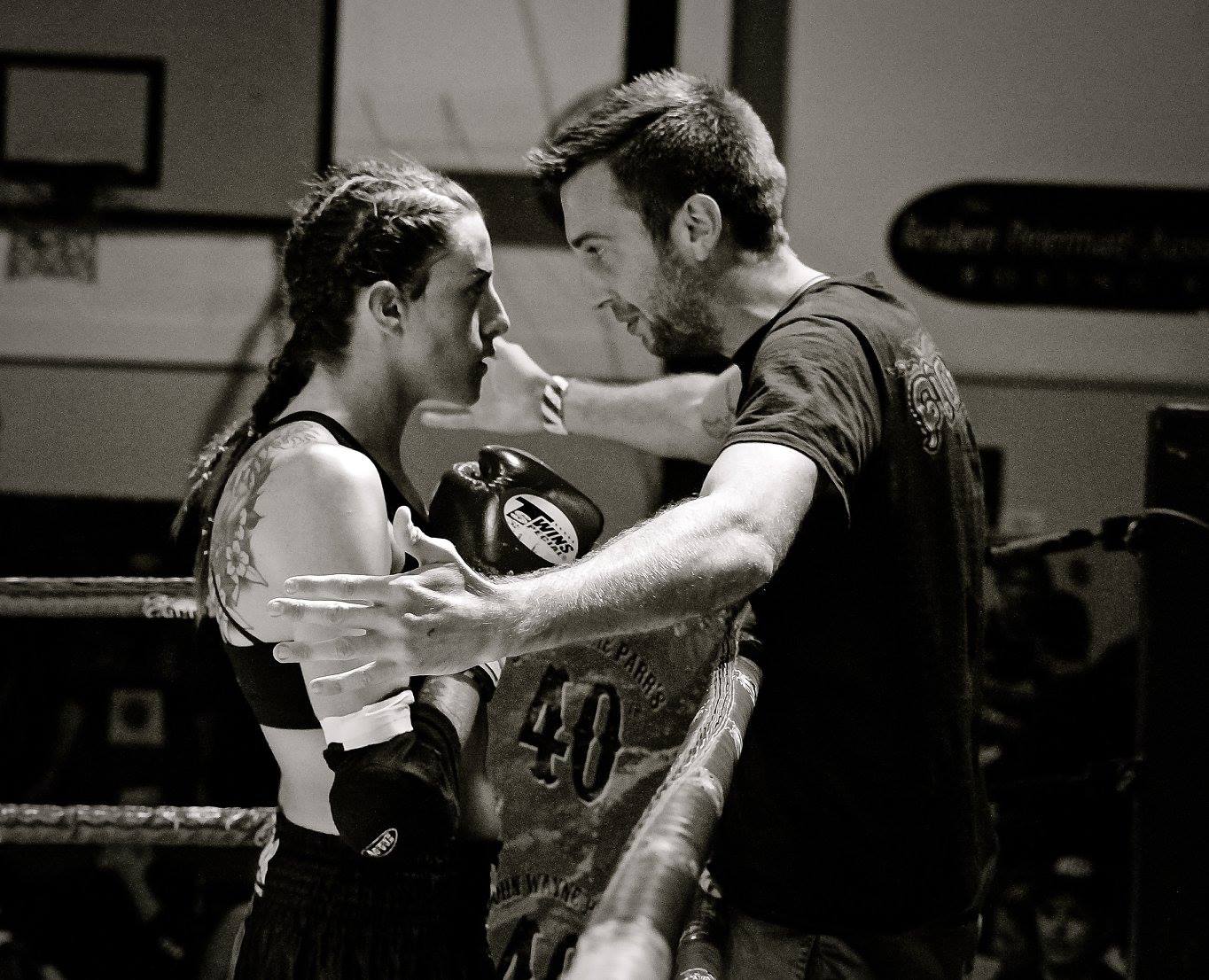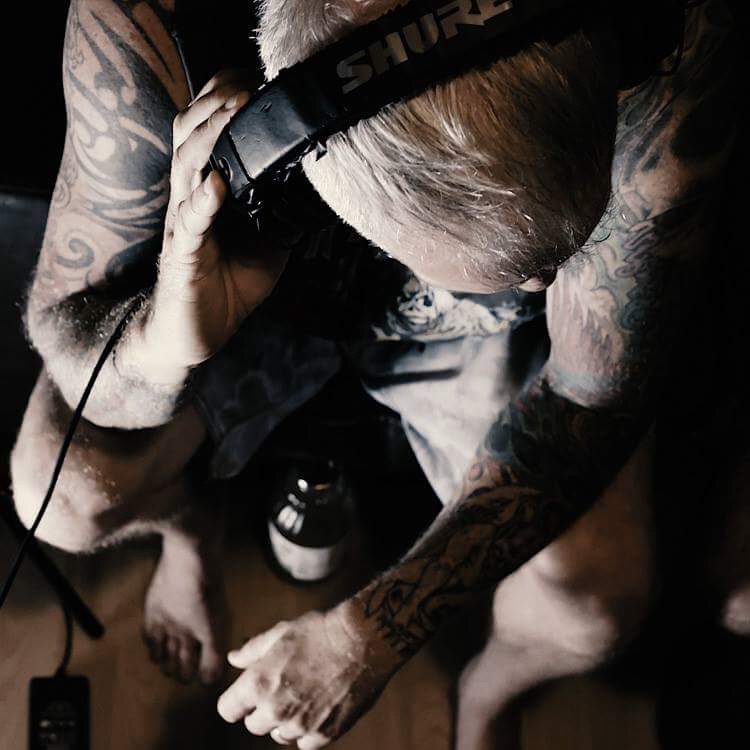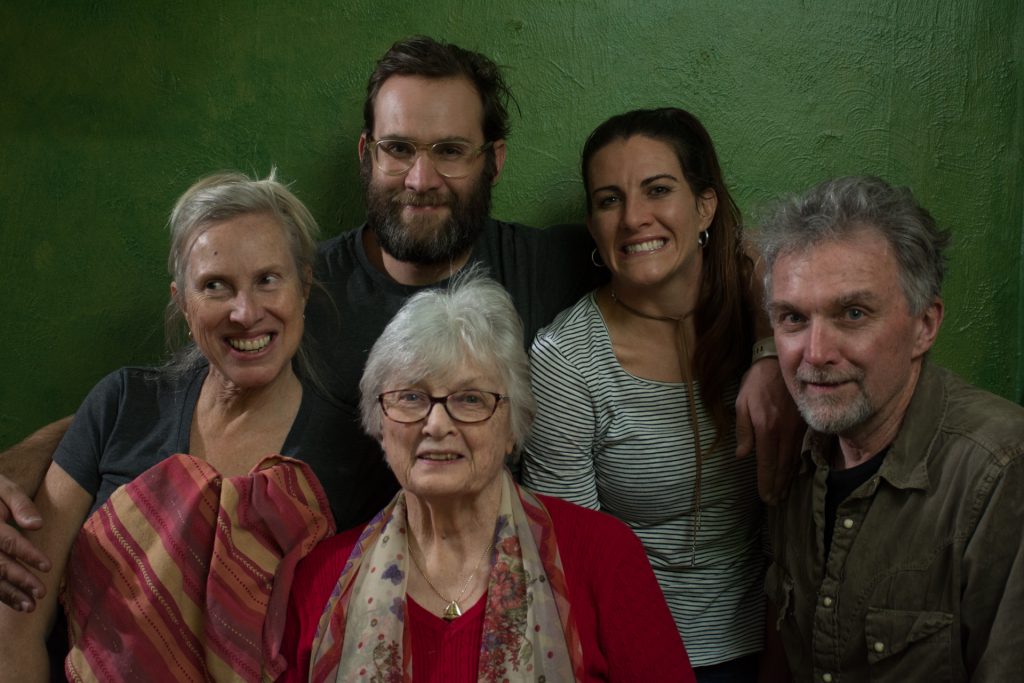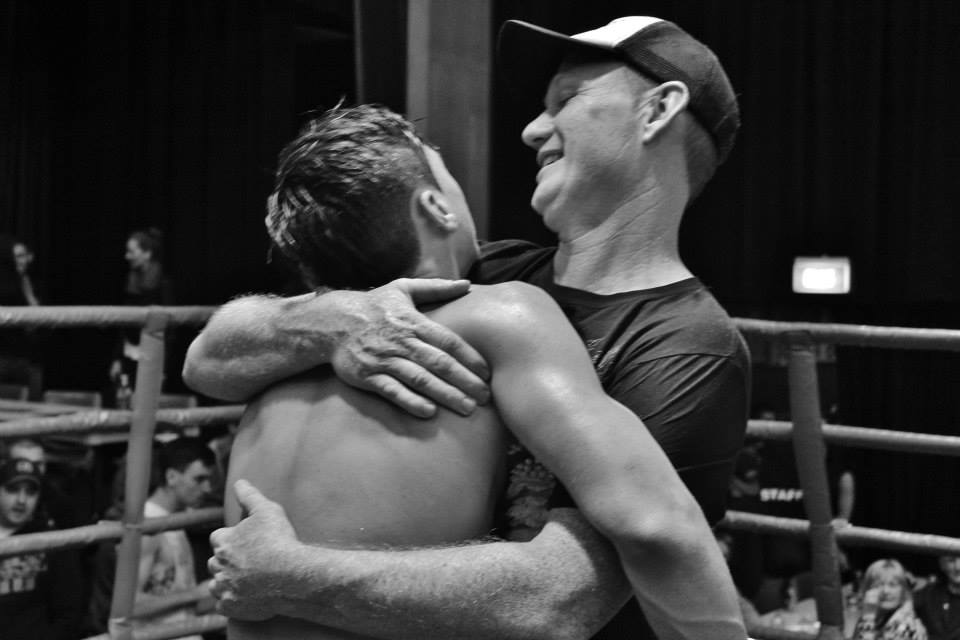
Closure Optional, Ep. 42 – Human Motivation and and Introduction to T.A.
In this episode I discuss some made up and some actual psychological theories on Human Motivation – why, the fuck, do we do what we do? What is this “dream” that the Social Media Influencers want us to pursue? What need is your dream actually fulfilling? And a sneak peak into how your unsuspecting partner is in fact dating both you and your mother simultaneously….
Show Notes:
- The psychological theory I’m discussing is called Transactional Analysis, or TA.
- The Blindboy Podcast, Episodes on Psychology are “Creaking Ditch Pidgeon” and “An Introduction to Congnitive Psychology”, Parts 1, 2, and 3.
- For further reading on TA, Games People Play by Eric Berne, is written by the guy who developed it.
- A further look into the nuance of “Strokes” in Transactional Analysis
Please subscribe to Closure Optional here: itunes, Stitcher, Android, Email, or wherever you like to hear your podcasts and help this thing grow. If you’re on an Android device, I’ve found that Podcast Addict works the best. Thank you for listening, as always.
This podcast is made possible by Burleigh Heads and Broadbeach Physiotherapy, Heart Start Fitness Muay Thai and YOU, the listener, at patreon.com/lorna bremner.
Closure optional Theme is created by Kurt Chatfield.

Why the fuck do I do this? 
Oh yeah, I remember… 
Not Ok – Kurt and Justin 
Zoe and Blair 
Team Urban Christmas Party 
Lucas Recording 
WBC Title Defence 
Family and Grandma 

The making of High as Mike 
WMC Australian Title Melina Yung vs Leonie Macks
Show Transcript (roughly):
- Why do we think we need stuff and why do we get bored or unsatisfied?
- There is a Psychology called Transactional Analysis, or TA, that deals with this very thing. Now there’s a lot to it, so today I’m just focussing on one introductory aspect of TA, and I’ll do another follow up to this one to cover more of the topic. If you want to read more about it, there is a great book called “Games People Play” by the guy who came up with the theory in the late 1950’s, Dr. Eric Berne.
- So why does anyone do anything?
- There is an entire industry online now, where “Instafamous Influencers” tell you to “Chase your dream” “live your best life” “be yourself” whatever that means… this is so popular only because human beings are addicted to potentiality.
- We crave newness constantly, and with the world moving as fast as it can between one new thing and the next, we are responding with ever increasing appetites for more and more things, shows, music, phones, whatever.
- Why do we smile at a baby, or get excited about a new puppy? They are Potentiality, incarnate.
- The shit part, is, like an ex-alcoholic turned sex-addict, we are in the habit of transferring this addiction to potentiality into an addiction for stuff and status in the material world, which unfortunately, looses its charm almost immediately after you get it. We haven’t satisfied the addiction, we’ve just plugged our emotional holes for the moment until the leak gets so bad we have to do it again.
- But what about “chasing your dream” Surely that’s better than wanting a new Rolex? I’d argue that, at it’s core – the dream of say, making sure your town has clean drinking water, can be just as cheap as getting yourself a new Rolex, because the DREAM itself is irrelevant. WHY you have that dream, is far more important.
- What is a dream?
- Literally, a dream is an incoherent stream of consciousness that happens TO US when we’re unconscious, which is completely out of our control without “normal” logic and is not bound by the laws of nature.
- Then there’s the second use of this word, Dream, which basically means your ideal, – this, I think, is referring to the unlimited potential that seems to come to us in an actual dream. There are no limits, no rules, no rational logical setbacks that can stop a dream from being ANYTHING it wants to be. But that’s a key distinction – the DREAM can be whatever it wants to be, You, CANT.
- Even if you’re good at lucid dreaming, that is, controlling your dreams, even then you’ve actually limited that dream to your own imagination, which is a pathetic imitation of the infinite possibilities available in real dreamland.
- The DREAM that the instagram influencers of the world want you to create for yourself is in-fact, the POTENTIAL of you being something that you imagine RIGHT NOW would be perfect. What was your dream as a kid? I wanted to either be famous or a doctor. So I settled on playing a doctor on TV – that’s good logic right? How much different are your DREAMS now, compared to what they were when you were a kid? What about 5 years ago?
- Also, your dream is quite possibly someone else’s nightmare, and so “living the dream” isn’t such an easy thing to define…
- And inevitably, if you do “achieve your dream” you will realise quite quickly that whatever you imagined was missing a lot of details that make your new life difficult to live – even if it’s near perfect, you will find a reason why it’s not. You’re a human, it’s what you do. And here’s my theory on why that is…
- At our core, we have two fundamental fears – these two fears drive every other fear we have in our lives. They are: Fear of the Unknown, and Fear of the Finite. This is the confusion of the human condition, because those two fears are contradictory terms, they’re exact opposites.
- Heres a light example to mull over: your own death. We know that we’re going to die one day, but we don’t know what happens after that, and so we generally cling to life – the fear of the unknown is stronger than our desire to know for sure.
- Because death is, also, Final, as far as we know. So we are afraid of the bleak nothingness of death, just as much as we are afraid of the unknown beyond it. Suddenly, the fear of the unknown seems less scary compared to the finality of nothingness, so we suddenly get excited about the possibility of something better on the other side.
- But, then again, what if it’s worse? Oh shit, the fear of the unknown re-appears. And so it goes, on forever…
- We are afraid of what we can’t see coming, but if we already knew the ending, there would be no reason to exist. So we’re stuck in an infinite balancing act of trying to seek security from the chaos of the unknown, while constantly seeking new things to avoid becoming stagnant and wasting away.
- So my theory on motivation is that our basic core drive is to structure our lives in a way that keeps us in a harmonious balance between the terror (and thrill) of the unknown and the security / boredom of the known. Everything works in opposites.
- So in order to structure our time here, we develop tastes for things that matter to us, things that thrill us or scare us or keep us safe or make us bored. We hold on to them as long as they keep us entertained, and we move on when we can’t take it any more. You might meet your soulmate, then find out in a year that they have a second family in another country – the only thing we know for sure, is that nothing ever stays the same.
- That might sound scary, but it’s actually the fun of the game. Think about how much freedom comes from that realisation. Your life doesn’t depend on your DREAM, your life depends on the way you BALANCE your chaos and order.
- If you fail at your dream, you’ll get a chance to make a new one with the shit you just learned. If you succeed at your dream, you’ll eventually get bored and stagnant, and yes, you’ll get a chance to make a new dream with what you just learned. The meaning isn’t in the DREAM, the meaning is in EXPERIENCE.
- The amazing part of all this is the fact that you even have the option to come up with a dream in the first place. It can be something silly like getting your mom to laugh when she’s in a bad mood, or something forced on you feeding your family for the day in extreme poverty. We are designed to solve these problems and survive, and the reward is not necessarily survival, it’s how much you can learn in the process. If you learn, you get better at solving problems and you get new ones, if you don’t you try again.
- So I was saying before that I think the content of the dream, and even it’s outcome, is basically irrelevant, it’s the reason WHY you do it that actually matters.
- If I use the same example as before, which was making sure your town has clean drinking water, it sounds like a pretty wholesome thing to do right? Maybe.
- Say there’s an election coming up and if you get the town’s water supply clean then you’re sure to win the election and beat that stupid asshole who used to bully you at school once and for all.
- Then the Dream is, actually, that you win a town election. This is a game, and the clean water is simply a move towards the final goal.
- Sure the town gets clean water, but for how long? Did you care enough about it to make sure it got done right, or did you do the bare minimum to get elected and will deal with the fall out later?
- The problem with setting goals and motivating ourselves to achieve them, is not that our goals are bad or that we’re lazy – it’s our inability to be honest with ourselves about why we want what we want.
- So, HOW do you know WHAT you REALLY want?
- Why, as a kid, did I want to be famous? At the time, probably it seemed like fun, but if I’m totally honest, it was because I was lonely and felt like if more people knew who I was, they would pay attention to me, listen to me, validate me, and understand me. I would be showered with love and affection for merely existing.
- But, since that “DREAM” operates in dreamland where everything is magic and unicorns, it is missing the actual nuanced details that come with the reality of being a Famous Doctor on TV, some of which are:
- When you’re “Famous” no one gives a shit about who “YOU” are, they care about the you they have imagined you are from what they have seen on TV / or the internet or whatever and you’re constantly in the public eye, where the world waits to catch you being something other than what they imagined you are.
- So there is an unnatural expectation for you to be something other people expect you to be, and they are constantly watching you to catch you being something else, and the end result is isolation, shame and the necessary development of a “safe” personality, which can be adjusted to suit the current social environment.
- But you’re not alone in the struggle, your peers are also famous people, but they too have the same issue. No one is satisfied with their current position on the social ladder, because it is not “you” on the ladder its “the you the public wants today”.
- Everyone at the bottom is desperate to get to the top because they feel like if they do, then they can finally relax.
- But, the people at the top are constantly having to balance their disappointment at how isolating the “top” is, with the fear of loosing that position to the hungry “new rising star” who’s climbing the ladder beneath them.
- So, me, now a Famous Doctor on TV, might have achieved my dream, but it doesn’t fix the initial ache for connection and understanding that made me want to be famous in the first place. In fact, the end result is almost exactly the opposite – lonely isolation in a world of incomprehensible expectations.
- So when I was 10 my Dream of being a Famous Doctor on TV was, in fact, a model I built to satiate a need for connection at the time. That should have been my dream.
- It could have been better phrased like this “I have a dream, of one day, feeling fulfilled in the work I do by connecting honestly to people around me so I don’t resort to embarrassing social seizures where I demand to be given attention for existing because my life feels lonely and meaningless.”
- And it turns out, I’m not the only one. This appears to be a very common human need, so common, in fact, that it forms the foundation for the psychoanalytical system designed by Eric Berne, called Transactional Analysis or TA.
- So TA is a method of psychoanalysis and therapy that focuses on how people interact with each other, and themselves, in order to understand human behaviour. There are two levels to this, one is the Social level – the interactions you can see between people – and the individual level, which is what’s going on in each of their individual psyches during and after the interaction.
- Eric’s theory is that the foundation for all human interaction is what he calls “Social Intercourse” and the purpose is, simply “recognition”.
- In a previous podcast, episode 34, the social masturbation episode, I was talking about the effects of social isolation in rats after birth, and how badly it fucked up the pups. If they didn’t get licked and cuddled by their mom, they had major behavioural problems in the future.
- Humans are no different, and since we have complex language and social structures, we have developed methods of getting that affection in both physical and non-physical ways, through social interactions.
- In TA, each interaction between people is called a “Transaction” – which is something as simple as 2 people waving at each other, and the currency they exchange during the transaction is called a “Stroke”. Like stroking a cat… not having a stroke. It’s probably where the term “stroking his ego” comes from.
- A Stroke is “recognition” that you exist, in it’s simplest form. A nod from stranger is enough to reinforce the fact that you exist and that the stranger has accepted that fact. According to TA, the majority of human behaviour can be attributed to this single desire, and they call it “recognition-hunger”, or “stroke-hunger”.
- Your early childhood experiences can have a big impact on your desire to be stroked, the same way it impacts a rat in isolation. If you haven’t gotten the recognition you think you need, you’ll find ways to get it, good or bad..
- So a simple interaction at the grocery store, for example, may have 10 transactions, and the people involved will have given or received any number of strokes during the course of these transactions. In TA they don’t get into the measurable “Stroke balance” as such, but I’ll put this out there in mathematical terms so it paints a good picture.
- For example: Say you walk into the grocery store one evening:
- You wave at the car passing who let you into their parking spot. That’s one transaction, and you spent one “stroke” in giving them a wave. They wave back, and you receive one “Stroke”, so your Stroke balance is even. So far so good.
- Then you go up the escalator, into the shop, and you nod and smile at 3 people who are coming down the opposite direction. That’s 3 transactions, and you gave out 3 strokes. 2 of them nodded and smiled back, but the third looked at the ceiling when you caught their eye. You got 2 strokes back, and you suffered a little loss at the lack of reciprocation from the socially awkward 3rd person.
- This is an example of a negative stroke – you got recognised as a human, you just didn’t get the reciprocal response to the positive stroke you gave them.
- Interestingly, it turns out, that even really bad negative strokes, like someone telling you that you’re a pathetic loser is still psychologically less damaging than someone pretending that you don’t exist.
- Since what you want is simply recognition, if you cant get a positive stroke, you’ll actually find a way to get a negative stroke just to make sure you’re still real…
- Now inside the shop you’re focussed on getting your food – trying to appear healthy to all the prying eyes, and filling your cart with vegetables to cover the cookies and chocolate that are the real reason you’re at the supermarket in the first place.
- You meet the eyes of a passing stranger and their eyes flick down to the contents of your cart, and you know they’ve seen what you’re trying to do. You smile, and they look away. Now you’re at -2.
- You turn the corner out of the veggie section into the stinky meat refrigerators and you notice someone you know from the gym (thank god the kale is fully covering the cookies).
- “Oh hey, Lorna right? From the gym.” +5 strokes, they’ve said hello, they remember your name, and they remember why they know you. “Oh hey man, yeah, how are you?” Uh-oh, you’ve reciprocated with only 4 – asking them how they are only just got you back on the scale at all after not remembering their name!”.
- A little flicker of hurt crosses their face, but they’ll stick with it because you care enough to ask how they are, and they reply with a curt “I’m good thank you.” They look around for something else to say, they’re already down 1 stroke to you, and they’re not going to give you any more until you make up for the deficit. “Ah that’s good to hear, hey did your mom’s surgery go ok, I remember you were saying you had to get her to the hospital last week.”
- Nice one!! thats a full 5 strokes in one sentence fired back at them, and they flush all pink with pleasure. “Oh, yes, thank you, that’s so kind of you to remember. Yes she’s fine, everything went exactly to plan, we’re all very happy.” They beam a huge smile at you as a stranger tries to squeeze between your carts in the aisle and the packs of dead animal on the walls, “well, I should keep moving, but it was very nice to see you again, Lorna, hopefully see you at the gym in the morning!” +4 points right back.
- “of course, you too, have a nice night!” You both smile and you’ve left with a perfect even balance. Nice save.
- Now this example could go on forever but I think you get the point – each interaction leaves us with a sense of ourselves and our place in the social order. We feel good when things are in balance, and we feel bad when we’ve expended too many strokes, or not reciprocated with enough of our own.
- The negative sensations of being out of balance, then, could determine our behaviour on the next interaction, and so on. And if we get caught out of balance for too long, our internal Stroke machine will start to click on.
- This is where things get complicated – if you, over time, learn that strangers look away from you when you smile at them, and that makes you feel invisible, then you will start to believe that you’re invisible in those situations. So you develop what they call “Stroke filters”, which are biases about who you think you are.
- For example, if you’ve been told your whole life that you’re pretty but you’re a bit stupid, if someone compliments your great idea, you won’t accept it. If they said you looked good while presenting the idea, then you’ll take that one on board. You won’t accept a stroke that contradicts the intricate web of beliefs you have about yourself.
- Crazy huh? So even if you had an objectively balanced day, in terms of giving out and taking strokes – if we had a little computer keeping count of everyones interactions all day, your PERCEIVED stroke balance will likely be different than what the computer says actually happened. The brain is a tricky bitch.
- One of the main points of TA is for the psychologist to analyse these types of external transactions in order to determine the patient’s INTERNAL psychological State.
- So the “Stroke Balance” I just described is a simplified/measurable example of what is commonly known as “triggering” or how we tend to slip into certain behavioural patterns when we interact with the world. The Ego State, is a predictable collection of those behavioural patterns once they get rolling.
- The three ego states are:
- Child – The behaviour patterns you learned as a kid. Tantrums, Pouting, showing off, seeking validation, creativity and curiosity.
- Parent – The behaviour patterns you saw in your parents or authority figures growing up. Criticising, judging, scolding or nurturing, problem solving and organising.
- Adult – This is a state of objective, conscious decision making, that deals with the immediate inputs at hand, with presence and clarity. This is the aim of TA therapy, to get the patient to operate more often in their Adult Ego state.
- So what does it all mean? What’s the point? The point is, if you find yourself repeatedly doing the same behaviour in social situations, it is most likely that you’re feeling a bit of “stroke-hunger” and in order to get some recognition, you’ve slipped into a predictable set of behavioural patterns that have gotten you recognised in the past. And that could be by adopting a method that you used as a kid, or adopting the method your parents used on you.
- If you don’t like the patterns you’re falling into, you can change them by recognising the child-like or parent-like states that you or other people are adopting around you, and instead of reacting to them, be an Adult. With presence, clarity and patience. This will help the other person also shift out of their behaviour pattern, and it stops the game from progressing.
- Lastly, your day to day behaviour is what creates your life, generally, so having a bit more presence in your daily interactions will start to help you see where you are seeking attention or validation, and where you’re generally present and content. This little act of noticing can help guide you to discovering the ACTUAL reasons why you’re doing what you’re doing, and why you’re dreaming up schemes that you keep avoiding or sabotaging.
- You can almost guarantee that if you’re sabotaging something, or avoiding something that you know you need to do, it’s a very clear indication that your actions are at odds with your actual motivations or desires.
- That’s enough from me for one day, next month I’m going to do a continuation of this week’s podcast on TA, because we’ve only really just scratched the surface. If you have any questions, concerns and ideas, as always, send em through.
Podcast: Play in new window | Download
Subscribe: Apple Podcasts | Google Podcasts | Spotify | Email | RSS | More
nice post, when next eps will release?
Hi there – episodes are released weekly every Sunday (or Monday) depending on your location. Thanks for listening 🙂